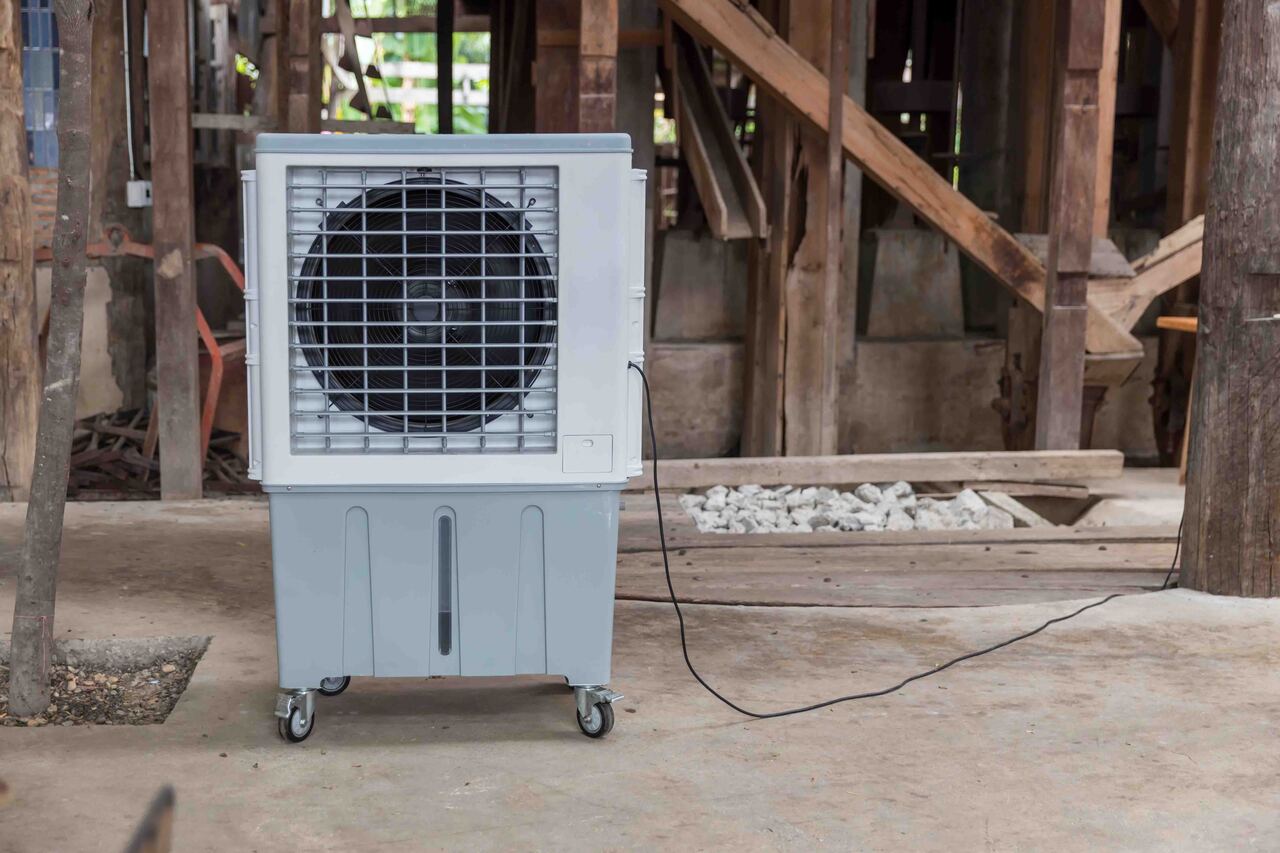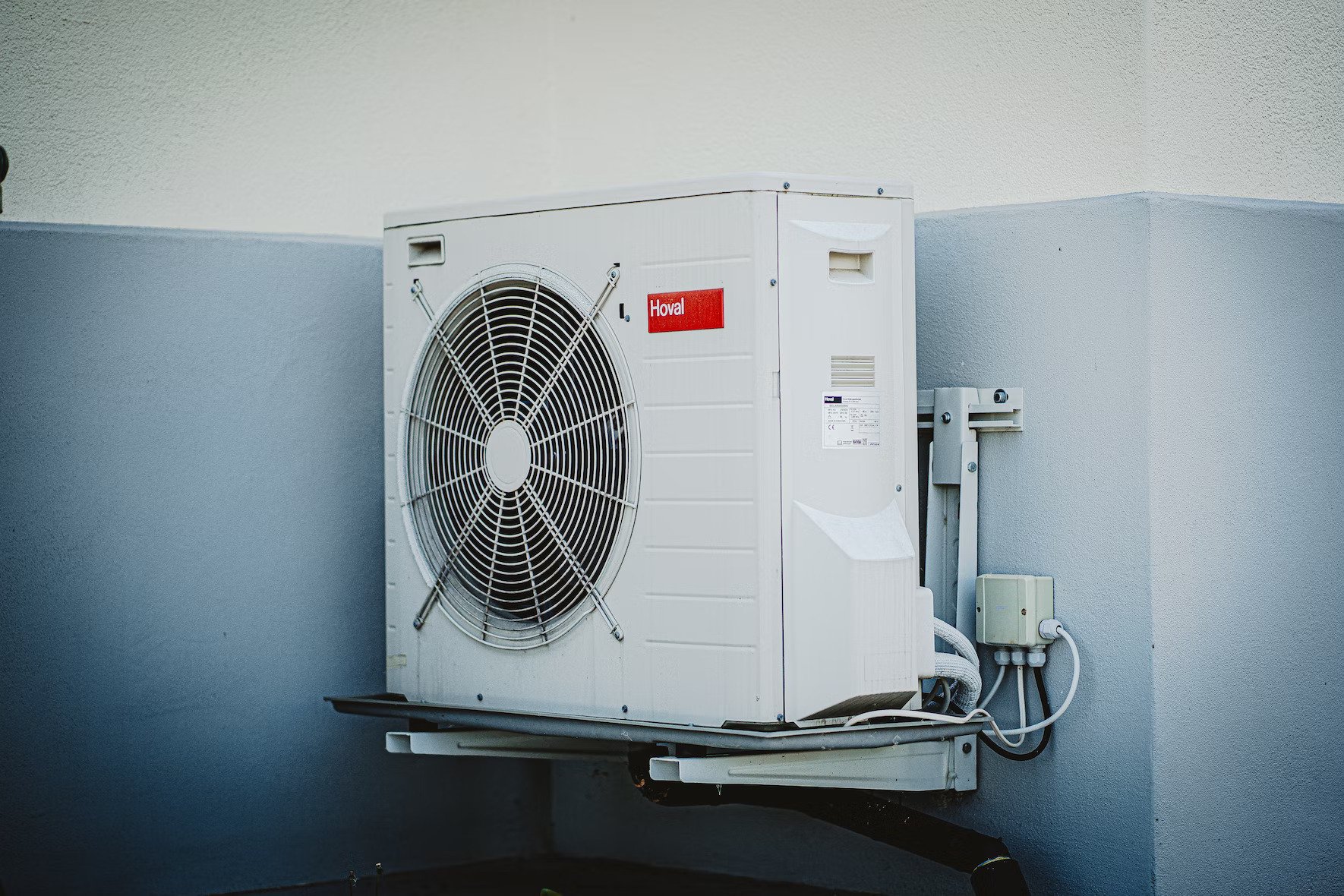Swamp coolers and air conditioners are popular for keeping homes and buildings cool in hot weather. Here, we will provide a detailed comparison, including their benefits and drawbacks. We will also discuss which cooling system is best suited for different situations.
Key Takeaways
- Swamp coolers use evaporation to cool air, while air conditioners use refrigerants.
- Swamp coolers are more energy efficient and cost-effective than air conditioners but are less effective in humid climates.
- When choosing between a swamp cooler and an air conditioner, your location and needs are vital.
Are you skeptical about choosing between a swamp cooler and an air conditioner? While they all serve the same purpose, they work differently and have many differences.
Table Of Contents
- 1 What Is a Swamp Cooler?
- 1.1 How Does a Swamp Cooler Work?
- 1.2 What Is an Air Conditioner?
- 1.3 How Does an Air Conditioner Work?
- 1.4 Swamp Cooler vs. Air Conditioner
- 1.5 Advantages and Disadvantages of Using a Swamp Cooler and Air Conditioners
- 1.6 Is a Swamp Cooler Better Than an AC?
- 1.7 Is Running a Swamp Cooler Cheaper Than an AC?
- 2 Swamp Cooler vs. Air Conditioner FAQs
- 3 Conclusion
What Is a Swamp Cooler?
A swamp cooler is a cooling system known as an evaporative cooler or swamp box. Unlike other coolers, it uses the mechanism of controlling evaporation to cool rooms.
Related: Heat Pump vs. Central Air – Detailed Comparison 2023
How Does a Swamp Cooler Work?
The swamp cooler pulls in hot, dry air from the outside and passes it over water-saturated pads or filters. As the air goes through the wet pads, some of it evaporates into air. A fan blows the cooled air into the room or space, lowering the temperature and increasing the humidity.
However, the water that evaporates during the cooling process must be replaced. For this reason, the swamp cooler has a system for continuously circulating and replenishing the water in the pads and filters.
What Is an Air Conditioner?
An air conditioner is a cooling system that cools a room by using air. It does this by extracting heat from the house and taking it outside. For this to occur, the AC captures warm air in a room and only leaves cool air that decreases the temperature.
How Does an Air Conditioner Work?
An air conditioner uses a refrigerant chemical such as Freon to cool air and remove moisture. The refrigerant is compressed and forced through a series of coils, rapidly cooled, and turned into a cold liquid.
This cold liquid is then passed through the second set of coils, absorbing heat from the air inside the room. The cooled air is then blown into the room by a fan. This causes the room’s air to cool and the moisture in the air to condense into water and drain away.
Related: AC Not Cooling Below 75 – Reasons And Solutions
Swamp Cooler vs. Air Conditioner
While both the swamp cooler and air conditioner work towards achieving the same goal, which one is better? Well, all these boil down to an individual’s preference. So let’s compare the advantages and drawbacks of the two.
Advantages and Disadvantages of Using a Swamp Cooler and Air Conditioners
| Advantages | Disadvantages |
| Swamp Cooler | |
| More energy efficient | Need regular maintenance |
| Offer better running cost | It may affect people with breathing conditions |
| Introduces more moisture | Often need water top up |
| Better for dry areas | Not great for humid areas |
| Quieter | |
| Easy to install and use | |
| Air Conditioners | |
| Offer better air humidification | Require a window for air outlet |
| Easier to set up and install | Noisy |
| Have better temperature control | Not suitable for dry areas |
| Require minimal maintenance | High purchasing and maintenance cost |
| Have more cooling power | |
Is a Swamp Cooler Better Than an AC?
Knowing whether a swamp cooler is better than an AC depends on your individual needs and circumstances. A swamp cooler may be the right choice if you live in a hot, dry climate and are looking for an affordable and energy-efficient cooling solution. However, a traditional air conditioner may be a better option if you live in an area with high humidity. It is also recommended for cooling an ample space or multiple rooms.
Ultimately, your best choice will depend on your specific needs, budget, and location. It’s always advisable to talk to a professional HVAC technician to help you decide which cooling system is best for your home or office.
Is Running a Swamp Cooler Cheaper Than an AC?
Swamp coolers are generally a cost-effective alternative to traditional air conditioning systems. In dry climates, swamp coolers use evaporation to cool the air, making them a more affordable option than AC units.
They also use the natural evaporation process to cool the air, making them a much more energy-efficient choice. Furthermore, they use up to 75% less electricity than traditional air conditioners. That means that running a swamp cooler will save you money on your monthly energy bills and also be kinder to the environment.
Related: Ultimate Review of the Best Smart Air Conditioner in 2023
Swamp coolers are also much cheaper to purchase and maintain than air conditioners. They are generally more affordable upfront and have fewer parts, making them easier and cheaper to repair. Additionally, they require less maintenance than air conditioners, as they do not have complex refrigerant systems that must be regularly checked and serviced.
Swamp Cooler vs. Air Conditioner FAQs
Can a Swamp Cooler Cool an Entire House?
Yes, a swamp cooler can cool an entire house. Swamp coolers are much better in dry climates with low humidity. In these conditions, evaporation is more efficient, allowing the cooler to cool a more extensive area effectively.
However, in humid climates, the evaporation process is less efficient, meaning it may only be able to cool part of the house. In these cases, a traditional air conditioner may be a better option for cooling your home.
It’s also important to consider the size of your home when determining if a swamp cooler can be a good option. A swamp cooler may cool a smaller home with good airflow, while a larger home may require a more powerful cooling system.
Do Swamp Coolers Actually Cool the Air?
Yes! Swamp coolers draw in hot-dry air and pass it through moist pads. As the air passes through the pads, it evaporates the water, which cools the air. This cooled air is circulated throughout the room or building, effectively lowering the temperature.
Best Evaporative Air Cooler
The best evaporative air cooler will depend on your specific needs. Some factors to consider when choosing an evaporative air cooler include the size of the area you want to cool. You also need to check the amount of airflow required and the noise level the unit produces. It’s essential to consider the design and aesthetic of the cooler, as well as its energy efficiency and overall performance.
However, some of the best evaporative air coolers currently available include the following;
- Hessaire Portable Evaporative Cooler
- Honeywell Evaporative Cooler
- BREEZEWELL Evaporative Air Cooler
- ComfyHome Bladeless Evaporative Air Cooler
- Evapolar evaCHILL EV-500 Personal Evaporative Cooler
I recommend researching and reading reviews about the above to find the evaporative air cooler that is best for you.
Swamp Cooler vs. Window AC
Swamp coolers and window air conditioners are two standard cooling systems in homes and businesses. While they both serve the same purpose of cooling the air, they function differently and have unique advantages and disadvantages. Swamp coolers are less expensive and energy efficient but less effective at cooling than window air conditioners.
On the other hand, an air conditioner for a window is a self-contained device, meaning that it has no external parts or components. This AC unit plugs into a standard outlet and may be wall-mounted or in a window. They are more powerful and can cool individual rooms, but they are more expensive and use more energy.
Swamp Cooler vs. Portable AC
A portable air conditioner is a self-contained unit designed to be moved from one location to another. It is different from a swamp cooler with an evaporation system for cooling. Furthermore, it has wheels or casters on the bottom, allowing you to roll it easily from one room to another.
It’s different from traditional air conditioners installed in a window or through a wall. You can place a portable air conditioner in any room where you need additional cooling.
Portable air conditioners are a good option for people who don’t have central air conditioning. It is also great for those who need to cool a specific area of their home or office. They are more affordable and more accessible to install than traditional air conditioners and offer flexibility in terms of placement and location.
Conclusion
In conclusion, both swamp coolers and air conditioners have their own unique advantages and disadvantages. Swamp coolers are cost-effective and eco-friendly but best suited for arid climates and small to medium-sized homes. On the other hand, air conditioners are more efficient and powerful, making them a good choice for larger homes and humid climates.
Ultimately, deciding between a swamp cooler and an air conditioner will depend on your specific needs, budget, and location. It is recommended to consult with a professional before making a final decision. Considering all the factors, you can choose the option to keep you cool and comfortable during the hot summer months.




